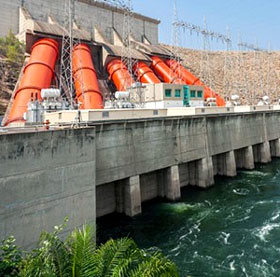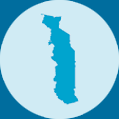- Argentina(Español)
- Österreich (Deutsch)
- Belgium(English)
- Belgique (Français)
- België(Nederlands)
- Brasil (Português)
- Canada(English)
- Canada (Français)
- Chile(Español)
- China(Chinese)
- Colombia(Español)
- Czechia(Czech)
- Denmark(Danish)
- República dominicana(Español)
- France (Français)
- Deutschland (Deutsch)
- Hungary(Hungarian)
- Italia(Italiano)
- 日本(日本語)
- Kazakhstan(Kazakh)
- Kazakhstan(Russian)
- Luxembourg(Français)
- Mexico(Español)
- Maroc(Français)
- Nederland(Nederlands)
- Panamá(Español)
- Perú(Español)
- Poland(Polish)
- Portugal (Português)
- Puerto Rico(Español)
- Romania(Romanian)
- Slovakia(Slovak)
- España (Español)
- Taiwan(Chinese)
- Tunisie(Français)
- Turkey(Turkish)
- Ukraine(Ukrainian)
- United States(English)
- Uruguay(Español)
- Venezuela(Español)
Risk Outlook February 2020-Togo

President Faure Gnassingbé is likely to secure a fourth term in office in February's election, ensuring his continued political dominance. Under the 2018-2022 national development plan, the government is keen to attract private financing into the renewable power sector, moderating contractual risks.
Security Environment
Investors in Togo’s renewable power sector may be exposed to elevated political risks in 2020.
In 2017-18, Togo experienced political instability when disputes emerged between the government and opposition over President Faure Gnassingbé's term length.
Talks between the two sides failed to produce an agreement in 2018, and the C14 opposition bloc boycotted general elections in December 2018.
Relations between the government and opposition remained poor in 2019, and the ruling Union pour la République party secured a landslide victory in June 2019's municipal elections.
Togo will hold presidential elections on February 22, 2020, with Gnassingbé expected to secure a fourth term in office.
This will consolidate his hold on power, following his party's strong showing in June 2019's municipal elections.
Protest activity is likely to increase in anticipation of the election, but is unlikely to reach levels of violence seen in 2017/18.
The government will disperse protests quickly using tear gas and rubber bullets. Incidents are unlikely to target hydropower projects and will be concentrated in urban areas.
Trading Environment
Togo's economy is expected to grow by 4.5% in 2020, driven by strong performances in the cotton and mining sectors.
In the cotton sector, Togo achieved a 17% year-over-year increase in production in 2019, as the government financed input materials for farmers. Production output is expected to increase by 30% in 2020, reaching 152,000 tons.
The government's national development plan (PND), announced in March 2019, should also support the economic outlook until 2022.
The PND aims to generate an additional 500,000 jobs by 2022, achieving a GDP growth rate of 7.6%.
The plan targets three main areas: developing Togo as a logistics hub; developing agricultural processing, manufacturing, and extractives industries; and promoting social development.
However, the 65%-privately financed PND is yet to secure funding for some projects, which may moderate its impact on near-term economic performance.
In December 2019, the eight member states of the Union Economique et Monétaire Ouest Africaine (UEMOA) and France agreed to reform the CFA franc, which will be renamed the "eco."
Reforms will see the French finance ministry return foreign reserves to UEMOA, while France will also withdraw from the UEMOA central bank. However, reforms are unlikely to significantly alter the currency regime, of which Togo is a member.
France will continue to guarantee the convertibility of the eco and the currency will remain pegged to the euro.
Foreign exchange reserves in September 2019 were equivalent to 4.8 months of import cover, reducing the likelihood of currency devaluation in 2020.
UEMOA states are also not expected to abandon the peg in 2020, given that a free-floating currency would almost certainly depreciate in value.
Historically, the protection afforded by the CFA franc has allowed many UEMOA states to build sizeable foreign currency debt, so de-pegging could significantly increase debt servicing costs.
Investment Environment
 Pricing Outlook
Pricing Outlook
2.50%-3% p.a
CEND Risk Pricing Range
1.5%-1.75% p.a
Sovereign Credit Risk Pricing Range
Investment in renewable power generation in Togo has so far focused on rural electrification and off-grid systems. Since March 2019, the government has provided subsidies to households for the cost of off-grid solar power systems.
However, in July 2019 the Togolese government announced plans to develop the country's first utility-scale solar projects, with a combined capacity of 60-80MW. The plants are to be located in Kpalassi and Salimdè.
In January 2020, the Togolese agency for rural electrification and renewable energy issued a request for pre-qualification to potential bidders.
Togo has historically relied on imports from Nigeria and Ghana for approximately 90% of its energy, meaning it has limited experience of independent power producers. However, the government has taken steps to attract private investment into the power sector.
Specialized commercial courts have reduced the average time required to resolve contract disputes to below the Sub-Saharan African average.
Moreover, the country's 2012 investment code protects against expropriation without compensation.
In a sign of investor confidence in Togo’s power sector, the country opened a 100MW thermal power plant in 2010. Its success should reassure investors in the renewable sector of the government’s commitment to private investment.
Rating Outlook: Strikes, Riots, and Civil Commotion; Currency Inconvertibility and Transfer Risk; Legal and Regulatory Risk.
Key Takeaways
- Togo will hold presidential elections on February 22, 2020, in which President Faure Gnassingbé is expected to secure a fourth term in office.
- Togo's economy is expected to grow by 4.5% in 2020, driven by a strong performance in the cotton and mining sectors.
- In December 2019, the eight member states of the Union Economique et Monétaire Ouest Africaine (UEMOA) and France agreed to reform the CFA franc, which will be renamed the "eco."
- The government's national development plan (NDP), announced in March 2019, should also support the economic outlook in the period to 2022.
- The NDP targets three main areas: developing Togo as a logistics hub; developing agricultural processing, manufacturing, and extractives industries; and promoting social development.
Placeholder for editing the content for: marsh/components/content/rightrailtext
Placeholder for editing the content for: marsh/components/content/rightrailtext
Placeholder for editing the content for: marsh/components/content/rightrailtext
Placeholder for editing the content for: marsh/components/content/rightrailtext
Placeholder for editing the content for: marsh/components/content/rightrailtext
Related Resources
- Risk in Context Podcast: Shifting Political and Credit Risks
- Risk in Context Podcast: Shifting Political and Credit Risks
- Oil Price Dynamics: Economic Risks in the Middle East and Africa
- Political Risk Map 2020
- Political Risk Map 2020: Mid-Year Update for Middle East and Africa
- Political Risk Map 2020: Mid-Year Update for Asia-Pacific
Placeholder for editing the content for: marsh/components/content/rightrailtext